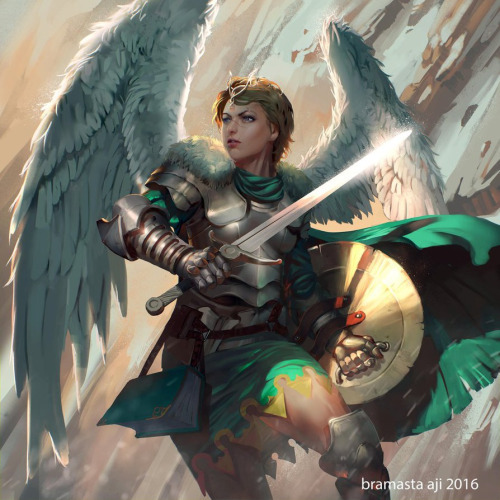Katherine Frances's Blog, page 212
July 13, 2016
ravencharm:
When you’re writing dialogue and one of your characters says something unexpected and...
When you’re writing dialogue and one of your characters says something unexpected and snarky and perfect and you’re just like… daaAAMmmnnnnnn…
July 11, 2016
bemusedlybespectacled:
I always find it kind of weird that matriarchal cultures in fiction are...
I always find it kind of weird that matriarchal cultures in fiction are always “women fight and hunt, men stay home and care for the babies” because world-building-wise, it makes no sense
think about it. like, assuming that gender even works the same in this fantasy culture as it does in ours, with gender conflated with sex (because let’s be real, all of these stories assume that), men wouldn’t be the ones to make the babies, so why would they be the ones to care for the babies? why is fighting and hunting necessary for leadership?
writing a matriarchy this way is just lazy, because you’re just taking the patriarchy and just swapping the people in it, rather than actually swapping the culture. especially when there are so many other cool things you could explore. like, what if it’s not a swap of roles but of what society deems important?
maybe a matriarchy would have hunting and fighting be part of the man’s job, but undervalued. like taking the trash out or cleaning toilets: necessary, but gross, and not noble or interesting. maybe farming is now the most important thing, and is given a lot of spiritual and cultural weight.
how would law work? what crimes would exist, and what things would be considered too trivial to make illegal? who gets what property? why?
how would religion work? how would you mark time or the passage into adulthood? what would marriage look like? if bloodlines are through the mother, bastardy wouldn’t even be a concept - how does that work?
what qualities would be most important in a person? how would you define strength or leadership? what knowledge would be the most coveted and protected? what acts or roles are considered useless or degrading?
like, you can’t just take our current society and say you’re turning it on its head when you’re just regurgitating it wholesale. you have to really think about why things are the way they are and change that.
Okay, this is interesting and I feel like this post is starting to think on the right track. When creating a new culture you need to think like a cultural anthropologist, and to do that, you need to think about the dawn of humanity, even if the culture you’re building is more modern.
For instance, why do we have genders, you ask? Why does sex and gender correlate in most, if not all (to some extent) human cultures. Well, it’s not coincidence, gender roles were formed as a means of survival. While it’s true that they have become rather obsolete in modern times, their formation was not about sexism, but merely practicality. So, it’s actually likely that a new culture of humanoids born in another world similar to ours, would also have gender roles linked to sex unless something drastically changed in order to explain otherwise, (for example, if men or women could give birth, or no one gave birth rather did some form of adoption).
Also, it is possible to have a female sex role that is both nurturing, and warrior. If you can find it in nature, then it’s possible. Lions.
All that said, there are actual human examples of a culture of more equality, where the men and women were held at equal value (in fact, anthropologists believe most cultures began that way) because child bearing and gathering food were equally essential jobs for survival as hunting. There are also cultures in which women were allowed, even encouraged to be warriors (vikings, for one).
So all things possible, I would say; go to the beginning of your civilization to a bands-and-tribes state of society, and mess around with the environment, the circumstances, change their essential resources and change the obstacles in their way to getting them. It’s likely that the roles developed in that stage of civilization would have very lasting roots in a modern culture, as ours do today.
July 9, 2016
m-l-rio:
Author problems: learning a word doesn’t mean what you thought it meant
dreamgogh:concept: lacy bralettes, messy half up top knots, black leather watches with gold accents,...
concept: lacy bralettes, messy half up top knots, black leather watches with gold accents, candles burning while a storm rages outside, that random stray piece of glitter on your face, the way you feel when you’re taking a nap with your pet, and the lights of a distant city as you drive towards it in the middle of the night.
July 6, 2016
"Rosy cheeks and love floating somewhere on a sunset.
I had the craziest idea..
we could catch it..."
Rosy cheeks and love floating somewhere on a sunset.
I had the craziest idea..
we could catch it in butterfly nets and it’d taste like cotton candy.
Because somehow I hate the thought of us,
standing back to back,
watching the stars run away.
- Love, Em // Back To Back (via scribblingwithstardust)
"“A word after a word after a word is power.” - Margaret Atwood"
"“Description begins in the writer’s imagination, but should finish in the reader’s.” - Stephen King"
- (via paperbackward)






